The MRI Working Group “Elevation-Dependent Warming” expands its scope of work to include climate processes in addition to warming, and therefore announces a name change to “Elevation-Dependent Climate Change”.
The MRI has been working on issues surrounding elevation-dependent climate change since 2012, assessing if, where, to what extent, and why mountains and other high elevation regions of the world are warming more rapidly than lowlands. Since 2015 understanding this has been a key activity of the MRI Working Group “Elevation-Dependent Warming” (EDW). As the work and interest of this working group have since expanded from warming to include additional climate processes specific to mountains and high elevation regions, the name of this group has been changed to “Elevation-Dependent Climate Change (EDCC)” to better capture its activities.
“For most of the last decade, the MRI working group has played a major role in highlighting the importance of warming in mountain areas for the international community. We now realise that many aspects of future climate change may be enhanced in mountain regions, including sensitivity to changes in precipitation, changes in the state of the cryosphere, and mountain hazards. Thus the name change is an indication of the importance of understanding the response of the whole mountain climate system”, says Nick Pepin, the leader of the EDCC Working Group. The objectives and activities of the working group have been updated on the working group home page.
Discussing Future Mountain Climate Change at the AGU 2019
One step towards moving from EDW to EDCC was taken last December in San Francisco, when the EDCC Working Group organized a side-event during the 2019 AGU Fall Meeting. On the International Mountain Day (celebrated each year on 11 December), the “MRI Synthesis Workshop on Future Mountain Climate Change – From Elevation-Dependent Warming to Elevation-Dependent Climate Change” brought together the participants of the MRI AGU Sessions “Mountain Weather and Climate in a Warmer World I and II” and other interested people to discuss climate processes in mountain environments.
Since the EDW workshop in 2015, the results of which were published in Nature Climate Change, there has been much more research on how present and future temperature trends may be elevation-dependent. Consequently, the topic has also been addressed as part of the IPCC Special Report on the Ocean and Cryosphere (SROCC), in Chapter 2 on “High Mountain Areas”. However, it is increasingly recognized that temperature changes do not act in isolation, but are influenced by other variables and mechanisms. There has been less detailed consideration of other climate variables such as snow cover, precipitation, humidity, and cloud patterns. Led by the Working Group lead Nick Pepin and Aino Kulonen from the MRI Coordination Office, the workshop invited a broader discussion from EDW to EDCC, considering both the theoretical perspectives behind expected changes in elevation profiles of variables other than temperature (e.g., precipitation, snow, cloud cover, wind), and the types of observation frameworks needed to capture these expected changes.
The key outcome of the workshop was the identification of climate processes that have elevation-dependent patterns and require further exploring. A second important outcome was that, to answer complex questions on elevation-dependent climate change, merging together two levels of global observation systems (high- and low quality) would be the most practical way forward. For this process, unified standards are a key requirement that could be addressed in follow-up activities of the EDCC Working Group.
The AGU workshop follows on from earlier work started at the EGU in Vienna in May 2019, where theoretical aspects of EDCC were discussed at the relevant session on Mountain climatology and meteorology (Session AS4.47/CR1.13/HS11.22/CL4.30), and the MRI Synthesis Workshop on mountain meteorology and climatology, which took place at the University of Vienna that same week (see EGU 2019 and workshop outcomes reported here). A peer-reviewed paper is currently under development as a result of this earlier workshop in 2019.
View and download the workshop report here.
Participants of the EDCC Workshop in San Francisco in December 2019.
For questions and inquiries regarding the EDCC Working Group, please contact the MRI Coordination Office.
Visit the EDCC Working Group Page
Cover photo by Pixabay user Witizia


